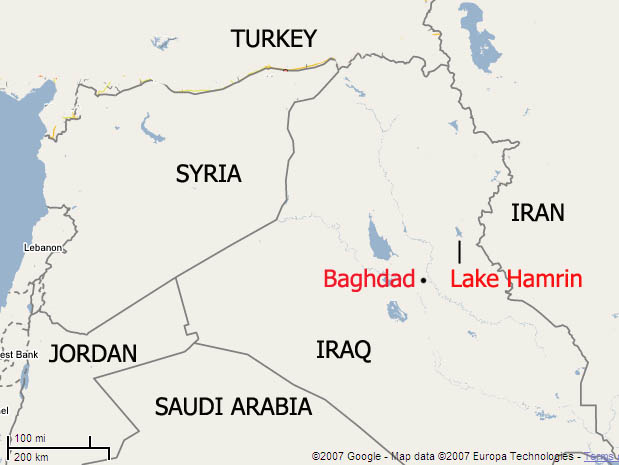Iraq’s Lake Hamrin in the northeastern province of Diyala has shrunk to nearly half its size and could dry up in a month or two, ruining the livelihoods of many farmers and fishermen, according to a local official and residents.
“The lack of water from Iran’s River al-Wand and Darbandikhan dam in the Kurdistan Regional Government [KRG] has caused Lake Hamrin to lose nearly 80 percent of its capacity,” said Mowafaq Hawar Mohammed, an expert with the provincial water resources directorate.
“The Iranians are constructing dams on the al-Wand and trying to divert it to their land, while the KRG is trying to retain as much of the water as it can to generate electricity. The lake countdown has started. We don’t think the lake will be there in a month or two if things remain as they are,” Mohammed said.
Lake Hamrin is about 50km northeast of Diyala’s provincial capital, Baqouba, and is by no means the only lake in Iraq which is drying up.
The man-made lake, with a surface area of 340sqkm, was established in 1981 to hold some 2.06 billion cubic metres of water. As well as being a source of fish, it provided water for nearby date palm orchards, and to local fruit and vegetable farmers.
“Over the past year many villagers abandoned agriculture and fishing in the area as water levels fell,” said Hassan Wasfi Adil, a 42-year-old resident of the area.
“The lake, which was once renowned for its variety of fish and used by hundreds of fishermen both from the locality and further afield, has now been severely reduced in size and you can walk through it some places,” Adil said.
sm/ar/cb
This article was produced by IRIN News while it was part of the United Nations Office for the Coordination of Humanitarian Affairs. Please send queries on copyright or liability to the UN. For more information: https://shop.un.org/rights-permissions




